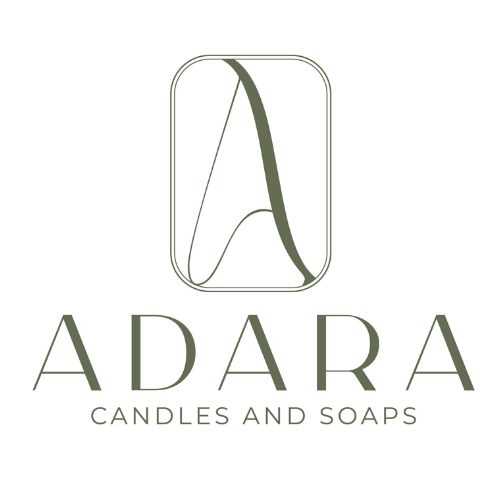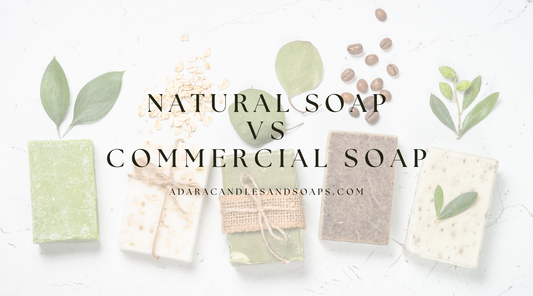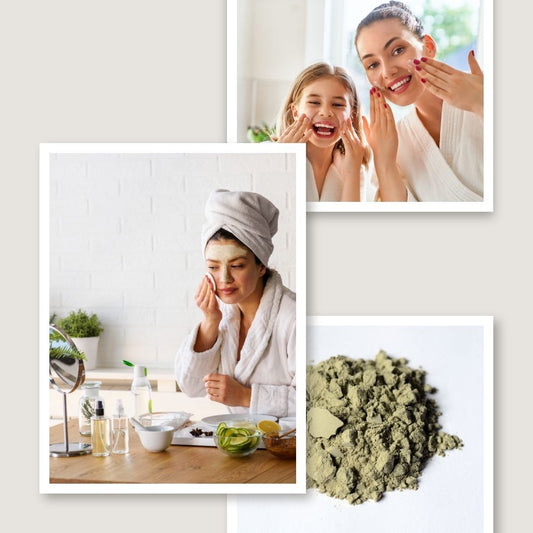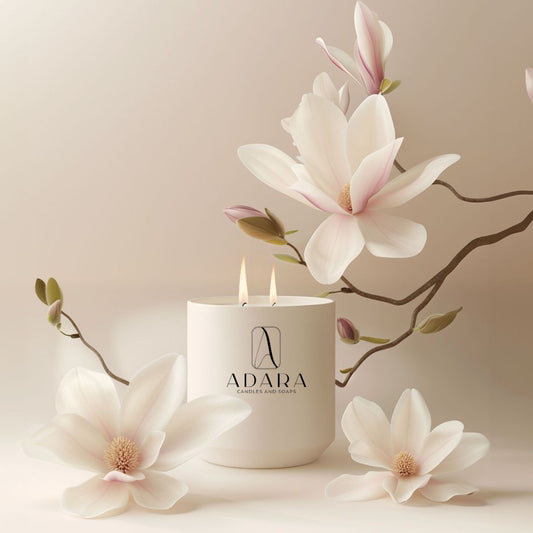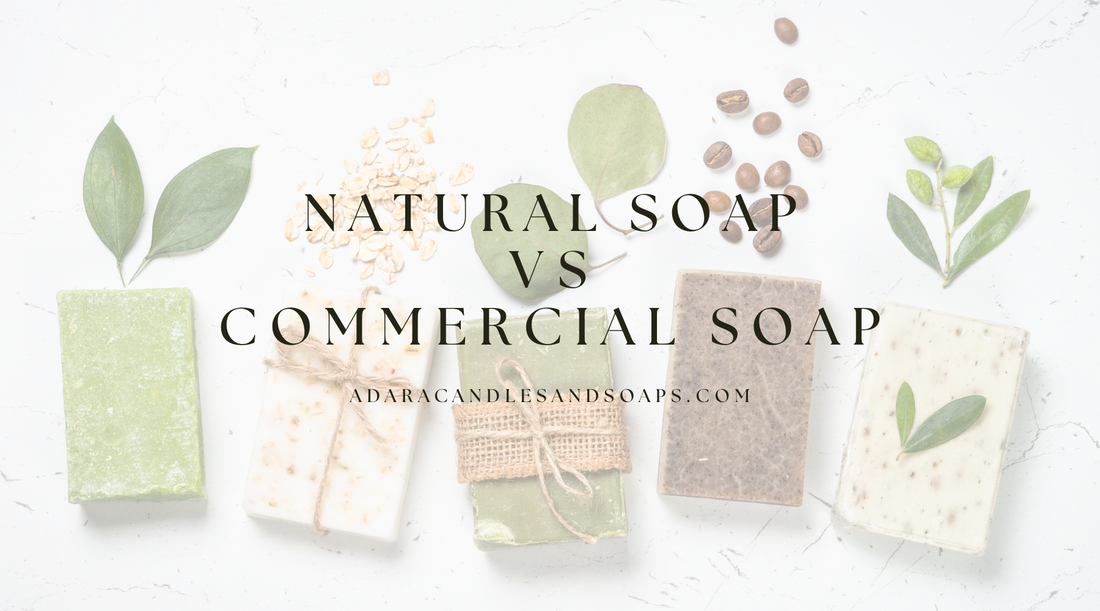
Natural Soap VS Commercial Soap
Share
Switching to Handmade Soap Makes Sense. Here Are 5 Reasons Why.
If you scroll on Pinterest searching for design ideas, sooner or later you’ll come across this
quote: “Have nothing in your house that you do not know to be useful, or believe to be
beautiful.”
It was William Morris, one of the most famous designers of the 19th century, who said it. Not that he’s always credited. I love the quote and do my best to live by it. I would go one step further to say I aim to fill my home with things that make me happy, big and small.
Because think about it: you can spend weeks deciding which couch to buy or what color to paint your walls. Important decisions, I know. But often it’s the littlest things that bring joy to your day. Your favorite ceramic mug — somehow coffee tastes better in it; a soft throw blanket that makes evenings extra cozy; even a beautiful bar of soap decorated with wildflowers.
When I switched from buying commercial soap to making my own all-natural soap bars, I was surprised how much joy the simple act of washing my hands brought me. Ok, ok, I know what you are thinking: “It’s just washing your hands! What are you talking about?” But remember: joy should be found in the little, everyday things.
There’s soap you grab from the shelf while running through the supermarket and then there’s a piece of art that is handmade soap. The latter is a rounded sensory experience: it looks pretty, smells heavenly, and feels good in your hands. I have the added benefit of being proud that I created something from scratch — no small feat — every time I wash my hands.
But let’s dive deep into all the reasons why switching from commercial to handmade soap
makes sense.
1. Ingredients You Know and Can Pronounce
This is probably the most important reason for me, personally. I want to nourish my body and give it the best care possible, which is hard to do when companies won’t even list all the ingredients they use in their soap. Often, dozens of components hide behind words like “perfume” or “fragrance”. Companies are not required to disclose the individual ingredients in a fragrance formula because it’s considered a “trade secret.”
And even when it comes to listed ingredients — take a closer look. You’ll often find sodium lauryl sulfate, parabens, and synthetic dyes there. And while I wouldn’t demonize so-called “chemicals” — everything is a chemical after all — I do prefer coconut oil, shea butter, and dried rose petals in my soap. I want to see ingredients that I know and understand. Don’t you?
2. Essential Oils Instead of Synthetic Fragrance Oils
In most commercial soaps, scent is added by using synthetic fragrance oils. These compounds are artificially created to mimic natural smells. They can cause skin irritation and even allergies for people with sensitive skin.
On the other hand, handmade soaps are usually made with pure essential oils. I, for one,
source mine directly from New Directions Aromatics, one of the leading suppliers of certified fair trade essential oils. Does it make my soap more expensive? Yes, of course. But this is the price I am willing to pay because not only do essential oils make soap smell good, they offer a whole lot of health benefits too.
Many oils offer antimicrobial and anti-inflammatory properties. Some balance oil production, while others can help reduce redness. Not to mention, they can help regulate your nervous system: lavender, for example, is relaxing and calming, while citrus oils are energizing and uplifting.
3. It’s Not Just Cleansing, It’s Nourishment
Homemade soaps don’t just clean your skin, they nourish it. Apart from essential oils I’d just mentioned, there are other ingredients like natural clays that work as exfoliants and plant derived oils and butters that are amazing for moisturizing and hydrating.
Then there’s the issue with glycerin. Glycerin is a by-product of the soap-making process and helps to deeply hydrate your skin as well as create a barrier that prevents it from drying. However, many manufacturers deliberately extract glycerin from soap to use it for lotions and creams. This is the reason why your hands might feel dry after washing.
Handmade soap retains all of the glycerin. Not only are your hands clean afterward, but they are moisturized too.
4. Are You Really Saving Money?
It might seem that you are saving money by choosing commercial soap, but think about it. If your hands feel dry right after washing them, you’ll have to invest more in lotions and hand creams to rehydrate your skin. Commercial soap creates a problem that has to be solved with more money.
Handmade soap can easily be both your cleanser and moisturizer. Not to mention, you can use it for your whole body, ditching expensive shower gels. In the long run, handmade soap offers better value for your investment.
5. Environmental Impact
Last but not least, handmade soap has a smaller environmental impact. The packaging is
usually minimal and recyclable. For example, I only use paper to wrap around my bars.
The ingredients are sustainably sourced and biodegradable. The recipes are vegan and there’s no cruel animal testing involved. Making soap in small batches also means reduced carbon footprint. And on top of all that, you are supporting artisans instead of large corporations. A win all around.
Washing your hands can be a 20-second act that you barely pay attention to. Or it can be one of those tiny things that add up to make your day joyous. Smell the incredible aroma, feel the rich lather on your hands, notice how your hands feel right after. There’s a reason why a bar of handmade soap makes a great present for your friends, but you wouldn’t think of giving them a bar of commercial soap. Treat yourself the way you would treat your loved ones.
